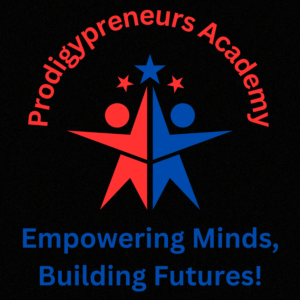Introduction:
In the fast-paced and dynamic world we live in, nurturing the cognitive and emotional development of our youth is more critical than ever. Enrichment classes, such as chess or young entrepreneurs, provide an invaluable platform for fostering skills that extend beyond traditional academic subjects. While sporadic attendance may offer some benefits, there’s a compelling case for the importance of regular participation in these classes. In this blog post, we will delve into the psychological aspects of why consistent engagement in enrichment classes is key to unlocking the full potential of our young minds.
- Building Cognitive Resilience:
Enrichment classes act as cognitive gyms, challenging young minds to think critically, strategize, and problem-solve. Regular attendance allows for the gradual development of cognitive resilience, a mental toughness that arises from consistently tackling complex challenges. In chess, for instance, the constant exposure to various strategies and opponents hones analytical thinking, concentration, and the ability to adapt to unforeseen circumstances. These skills become ingrained through regular practice, fostering a resilient mindset that extends to other aspects of a child’s life.
- Fostering Social Skills and Emotional Intelligence:
Consistent participation in enrichment classes provides a structured environment for social interaction, a crucial aspect of a child’s emotional and social development. Regular attendance allows young individuals to build lasting friendships with like-minded peers, creating a support system that goes beyond the classroom. In young entrepreneurs’ classes, collaborative projects and team activities promote effective communication, teamwork, and conflict resolution – skills that are indispensable in both personal and professional spheres. The emotional intelligence gained through these experiences is an invaluable asset that sets a strong foundation for future success.
- Creating a Sense of Identity and Purpose:
Engaging in enrichment classes on a regular basis allows children to explore their interests and passions in a sustained manner. Over time, this involvement contributes to the formation of a sense of identity and purpose. Whether it’s mastering complex chess maneuvers or developing a business plan, the pursuit of skills and knowledge fosters a sense of accomplishment and self-worth. Regular attendance provides a consistent thread of personal growth, helping children understand their strengths, weaknesses, and unique talents, which, in turn, contributes to a positive self-concept.
- Promoting Discipline and Time Management:
Enrichment classes often require a commitment of time and effort. Regular attendance instills discipline and time management skills in children from a young age. The routine of attending classes, preparing for assignments, and managing time effectively fosters a sense of responsibility. These skills are transferable to various aspects of life, including academic pursuits and extracurricular activities. Learning to balance commitments at an early age lays the groundwork for future success and productivity.
- Enhancing Cognitive Flexibility and Creativity:
Regular exposure to diverse challenges in enrichment classes stimulates cognitive flexibility – the ability to adapt and switch between different tasks or ways of thinking. In chess, for instance, each opponent presents a unique set of moves, requiring adaptability and creative problem-solving. Similarly, young entrepreneurs must navigate unforeseen obstacles, fostering creativity and innovative thinking. The consistent engagement in these classes nurtures a mindset that embraces change and welcomes new perspectives, qualities that are increasingly valuable in our rapidly evolving world.
- Boosting Academic Performance:
Numerous studies suggest a positive correlation between participation in enrichment classes and academic performance. Regular engagement in activities that stimulate critical thinking, problem-solving, and creativity can have a beneficial impact on a child’s overall cognitive abilities. The skills acquired in chess or young entrepreneurs’ classes often extend to the academic realm, enhancing a child’s ability to grasp complex concepts, perform well in exams, and excel in various subjects.
Conclusion:
In conclusion, the psychological benefits of regular attendance in enrichment classes for young minds cannot be overstated. Beyond the acquisition of specific skills, these classes serve as incubators for holistic development, encompassing cognitive, social, and emotional domains. By attending classes consistently, children not only deepen their knowledge and expertise but also cultivate essential life skills that will serve them well into adulthood. As parents, educators, and mentors, it is our responsibility to recognize the significance of sustained engagement in enrichment activities and provide the support and encouragement needed for our youth to thrive in an ever-changing world.
How useful was this post?
Click on a star to rate it!
Average rating 5 / 5. Vote count: 1
No votes so far! Be the first to rate this post.



Responses